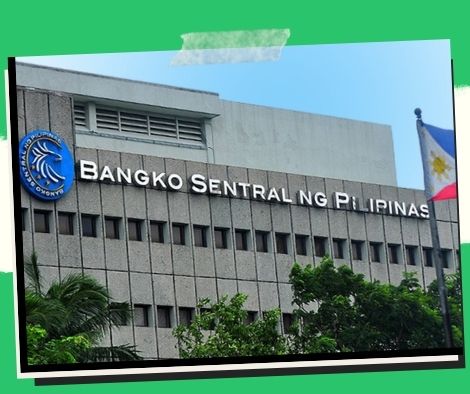
This week, Moody’s Analytics expects a 50bps increase in BSP rates.
When the Monetary Board meets on Thursday to make policy decisions, Moody’s Analytics predicts that the Bangko Sentral ng Pilipinas (BSP) key rates will rise by 50 basis points (bps), reflecting the expectation that authorities will now take demand pressures into account.
The rate-setting meetings of various central banks, including the BSP, Bank of Japan, and Bank Indonesia, will be among the key headlines from Asia this week, according to a report released on Monday by a division of Moody’s Corporation.
Even while the cost of food and oil has decreased, which has slowed the rate at which prices have increased in several countries, “eyes will be on what policymakers do now,” the article explained.
The research stated that once supply-side constraints subsided, central banks will consider demand forces when determining their next course of action.
The percentage change in the value or rate of a financial instrument is expressed in BPS, which is the unit of measurement used in finance.
One example is the Philippines, where the inflation rate dropped to 6.3 percent in August 2018 from 6.4 percent in July, the highest level since October 2018. This was a five-month increase.
Since April, when inflation accelerated to 4.9 percent because of increases in the price of oil on the international market and supply-side problems for animal products on the domestic market, it has exceeded the central bank’s goal range of 2-4 percent.
Up until now, inflation has averaged 4.9 percent.
Earlier, BSP Governor Felipe Medalla predicted that the peak in the monthly inflation rate would occur in either October or November.
Therefore, according to Moody’s Analytics, the Monetary Board will raise the BSP key rates by 50bps once more by September 22.
“Core inflation increased to 4.6 percent year-over-year in August, despite a slight decline in headline inflation. BSP has the flexibility to tighten monetary policy as a result of the strong GDP (gross domestic product) growth, which is a result of improving domestic demand, the study stated.
Core inflation, which does not include the volatile costs of food and oil, increased to 4.6 percent in August from 3.9 percent in July, bringing the annual average down to 2.9 percent.
The BSP’s benchmark interest rates have gone up by a total of 175 basis points since May, with monetary policymakers citing the domestic economy’s ongoing recovery as a buffer against the effects of the rate increases.
Save/Share this story with QR CODE
Disclaimer
This article is for informational purposes only and does not constitute endorsement of any specific technologies or methodologies and financial advice or endorsement of any specific products or services.
 Need to get in touch?
Need to get in touch?

We appreciate your reading. 
1.) 

Your DONATION will be used to fund and maintain NEXTGENDAY.com
Subscribers in the Philippines can make donations to mobile number 0917 906 3081, thru GCash.
3.) 
4.) 
AFFILIATE PARTNERS

World Class Nutritional Supplements - Buy Highest Quality Products, Purest Most Healthy Ingredients, Direct to your Door! Up to 90% OFF.
Join LiveGood Today - A company created to satisfy the world's most demanding leaders and entrepreneurs, with the best compensation plan today.

 Business, Finance & Technology
Business, Finance & Technology





 MANILA – Budget Secretary Amenah Pangandaman reassured the Bangsamoro […]
MANILA – Budget Secretary Amenah Pangandaman reassured the Bangsamoro […]


